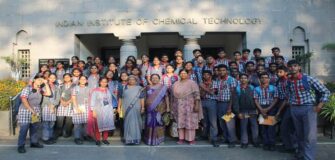Future of Hiring: Leveraging AI for Skill Testing and Talent Acquisition
Share

The integration of Artificial Intelligence (AI) in various domains has revolutionized the way we approach problems, and its application in the hiring process is no exception. AI holds the potential to significantly transform skill testing and hiring analytics, as well as bridge the gap in talent acquisition, ensuring that the right candidates are matched with the right roles. This article explores the transformative power of AI in these areas, shedding light on how it can refine and enhance the recruitment process.
One of the most promising aspects of AI in recruitment is its ability to analyze and predict candidate success. With AI, companies can now identify with precision which candidates, based on their backgrounds, are likely to excel or underperform in specific areas of testing. This is achieved through the collection and analysis of vast amounts of data on candidate performance, which AI systems can process to identify patterns and correlations that may not be evident to human recruiters.
This capability extends to predictive analytics, where AI can forecast the outcomes of skill tests even before they are administered. By analyzing historical data, AI algorithms can predict how candidates from various backgrounds will perform on different types of questions. This not only helps in customizing the assessment process to better evaluate the relevant competencies but also aids in setting more accurate benchmarks for candidate evaluation.
AI’s impact on recruitment is not limited to evaluating candidate abilities; it also plays a crucial role in scaling the hiring process and eliminating unconscious biases. Traditional hiring practices are often influenced by cognitive biases, which, although they speed up decision-making under uncertainty, can lead to less diverse and equitable workplaces.
The deployment of AI in hiring mitigates these biases by enabling mass interviewing and assessment processes that are standardized and data-driven. Since AI algorithms can be designed to focus solely on the competencies and qualifications relevant to the job, they significantly reduce the likelihood of biases that human interviewers might bring into the hiring process. This not only ensures a fairer evaluation of all candidates but also supports companies in their goals to create more diverse and inclusive workplaces.
Moreover, AI facilitates hiring on a scale previously unattainable through traditional methods. Automated screening and assessment tools powered by AI can evaluate thousands of applications in the time it takes a human recruiter to go through a handful. This capability is particularly beneficial for large-scale recruitment campaigns, where the volume of applicants would otherwise overwhelm human resources.
The power of AI extends beyond just improving the hiring process; it also plays a pivotal role in bridging the talent acquisition gap. By leveraging AI-driven analytics, companies can better understand the skills landscape and identify gaps in their workforce. This insight allows for more strategic recruitment, targeting candidates who not only fit the current needs but also possess the potential to address future challenges.
Furthermore, AI-powered platforms can connect candidates from diverse backgrounds with opportunities that match their skillsets, even if they’re from industries or roles traditionally considered unrelated. This not only expands the talent pool for employers but also opens up new career pathways for job seekers, facilitating a more dynamic and flexible workforce that can adapt to the changing demands of the global economy.
The integration of AI into the recruitment process represents a paradigm shift in how companies approach talent acquisition and management. By harnessing the power of AI for skill testing and predictive analytics, organizations can make more informed decisions about candidate potential, enhance the scalability and fairness of their hiring practices, and effectively bridge the talent acquisition gap. As AI technology continues to evolve, its role in transforming the hiring landscape promises to become even more significant, paving the way for a more efficient, equitable, and forward-thinking approach to recruitment.
















